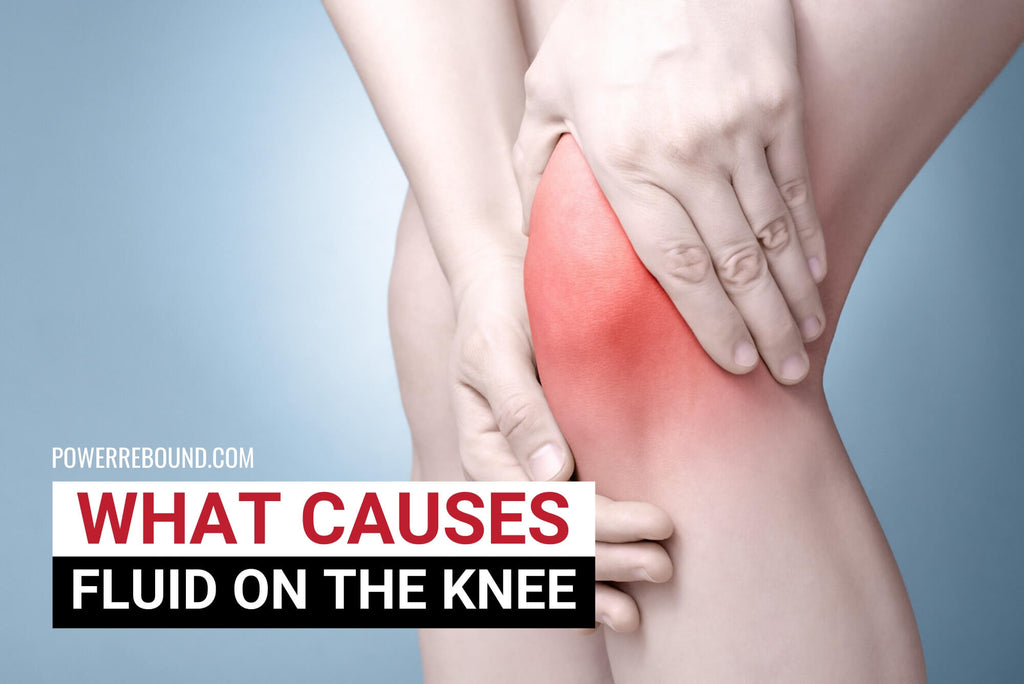

There are many causes of stiff knee pain, so it is important to consult a physician to determine the best treatment for your individual situation. Dietary changes may also help reduce the amount of uric acid in the body when gout is the source of pain. Your immune system is constantly sending fluids to help. Diet and nutrition: In cases where weight is a contributing factor to your knee stiffness, your physician may recommend changes to your diet to help facilitate weight loss. The simple answer to why is your knee is always swollen is because it is in a constant state of injury. Massage may also help improve the tone and increase the overall flexibility of the muscles that lend support and stability to the affected knee.A physical therapist can recommend exercises to help increase your range of motion. Physical therapy: O ne of the most common methods to relieve stiff knee pain is to strengthen the muscles surrounding the knee.This procedure is done using a local anesthetic. Aspiration: If a significant amount of fluid is present, your physician may relieve the area of pressure using a needle to remove (or drain) the excess blood and fluid.The extreme cold activates the body’s nervous, immune, and endocrine systems to quickly reduce pain and inflammation.
#Tightness and fluid in knee professional#

However, here are some common ways that may help you find some relief:

Identifying the cause of your stiff knee is critical to the effectiveness of your treatment. An X-ray can confirm the presence of osteoarthritis, and an MRI will check for meniscal tears or loose chips of cartilage. Confirm with Diagnostic ImagingĪfter asking questions about the nature of your injury, your physician may request diagnostic imaging such as an MRI or X-ray. He or she may also ask general questions about your overall medical history. To help determine the cause, your physician will ask questions about the location of the stiffness, whether you are experiencing any other symptoms like swelling, the nature of the pain (dull, shooting), and any recent physical activity you have participated in. The cause of pain directly impacts the physician-recommended course of treatment. Other potential causes include trauma to the knee joint, knee bursitis, gout, or knee tendonitis. The most common culprit of stiff knee pain is osteoarthritis, also known as wear-and-tear arthritis. Causes By Mayo Clinic Staff Many factors varying greatly in severity can cause leg swelling. Things to Do if You Have Stiff Knee Pain Troubleshoot the Cause The inability to bend or straighten your knee also has a negative effect on daily living. These can be detrimental to the strength, flexibility, and stability of the entire leg. Those who experience knee pain have difficulty moving the knee joint or loss of range of motion in the knee. population experiences stiff knee pain, with the incidence and severity of pain increases with age. Osteoarthritis, the most common type of arthritis, is caused by the breakdown of cartilage in the joint and can cause swelling, pain, and stiffness in the knee. It may also signal the presence of arthritis, which will need to be evaluated for appropriate treatment options.Satellite Office: 1 Compass Way, Suite 202 If you’re experiencing this, it’s critical that you visit a doctor as soon as possible. Stiffness at night might be an indication of joint damage. Overuse such as from running or biking for long periods.Injury to the joint or surrounding tissue.Common causes of tightness in knee include: If you are experiencing stiffness in your back knee, it’s important to see a doctor to determine the cause and get treatment. This might be due to an injury, overuse, or medical condition. Stiffness in the back of the knee can be a sign that there is damage or inflammation inside the joint. Together they can lead to stiffness in your knee. Pain and swelling are your body’s responses to damage. Arthritis, gout, and tumors or baker’s cysts are all causes of swelling. Fluid buildup can be caused by chronic inflammation, internal bleeding, and injuries to the knee. Swelling restricts movement since there is less room in the knee. You may feel this as stiffness in the knee since swelling may not be visible to the naked eye. Swelling might be mild, so you may not even notice the excess fluid. When fluid builds up inside the knee as a result of an injury, overuse, or a medical condition, the knees become swollen and tight.


 0 kommentar(er)
0 kommentar(er)
